第50章 The Wrong Shape(7)
"Leonard Quinton was a romancer, and was writing an Oriental romance about wizardry and hypnotism. He--"At this moment the door opened briskly behind them, and the doctor came out with his hat on. He put a long envelope into the priest's hands.
"That's the document you wanted," he said, "and I must be getting home. Good night.""Good night," said Father Brown, as the doctor walked briskly to the gate. He had left the front door open, so that a shaft of gaslight fell upon them. In the light of this Brown opened the envelope and read the following words:
DEAR FATHER BROWN,--Vicisti Galilee. Otherwise, damn your eyes, which are very penetrating ones. Can it be possible that there is something in all that stuff of yours after all?
I am a man who has ever since boyhood believed in Nature and in all natural functions and instincts, whether men called them moral or immoral. Long before I became a doctor, when I was a schoolboy keeping mice and spiders, I believed that to be a good animal is the best thing in the world. But just now I am shaken;I have believed in Nature; but it seems as if Nature could betray a man. Can there be anything in your bosh? I am really getting morbid.
I loved Quinton's wife. What was there wrong in that? Nature told me to, and it's love that makes the world go round. I also thought quite sincerely that she would be happier with a clean animal like me than with that tormenting little lunatic. What was there wrong in that? I was only facing facts, like a man of science. She would have been happier.
According to my own creed I was quite free to kill Quinton, which was the best thing for everybody, even himself. But as a healthy animal I had no notion of killing myself. I resolved, therefore, that I would never do it until I saw a chance that would leave me scot free. I saw that chance this morning.
I have been three times, all told, into Quinton's study today.
The first time I went in he would talk about nothing but the weird tale, called "The Cure of a Saint," which he was writing, which was all about how some Indian hermit made an English colonel kill himself by thinking about him. He showed me the last sheets, and even read me the last paragraph, which was something like this:
"The conqueror of the Punjab, a mere yellow skeleton, but still gigantic, managed to lift himself on his elbow and gasp in his nephew's ear: `I die by my own hand, yet I die murdered!'" It so happened by one chance out of a hundred, that those last words were written at the top of a new sheet of paper. I left the room, and went out into the garden intoxicated with a frightful opportunity.
We walked round the house; and two more things happened in my favour. You suspected an Indian, and you found a dagger which the Indian might most probably use. Taking the opportunity to stuff it in my pocket I went back to Quinton's study, locked the door, and gave him his sleeping draught. He was against answering Atkinson at all, but I urged him to call out and quiet the fellow, because I wanted a clear proof that Quinton was alive when I left the room for the second time. Quinton lay down in the conservatory, and I came through the study. I am a quick man with my hands, and in a minute and a half I had done what I wanted to do. I had emptied all the first part of Quinton's romance into the fireplace, where it burnt to ashes. Then I saw that the quotation marks wouldn't do, so I snipped them off, and to make it seem likelier, snipped the whole quire to match. Then I came out with the knowledge that Quinton's confession of suicide lay on the front table, while Quinton lay alive but asleep in the conservatory beyond.
The last act was a desperate one; you can guess it: I pretended to have seen Quinton dead and rushed to his room. I delayed you with the paper, and, being a quick man with my hands, killed Quinton while you were looking at his confession of suicide. He was half-asleep, being drugged, and I put his own hand on the knife and drove it into his body. The knife was of so queer a shape that no one but an operator could have calculated the angle that would reach his heart. I wonder if you noticed this.
When I had done it, the extraordinary thing happened. Nature deserted me. I felt ill. I felt just as if I had done something wrong. I think my brain is breaking up; I feel some sort of desperate pleasure in thinking I have told the thing to somebody;that I shall not have to be alone with it if I marry and have children. What is the matter with me? ... Madness ... or can one have remorse, just as if one were in Byron's poems! I cannot write any more.
James Erskine Harris.
Father Brown carefully folded up the letter, and put it in his breast pocket just as there came a loud peal at the gate bell, and the wet waterproofs of several policemen gleamed in the road outside.